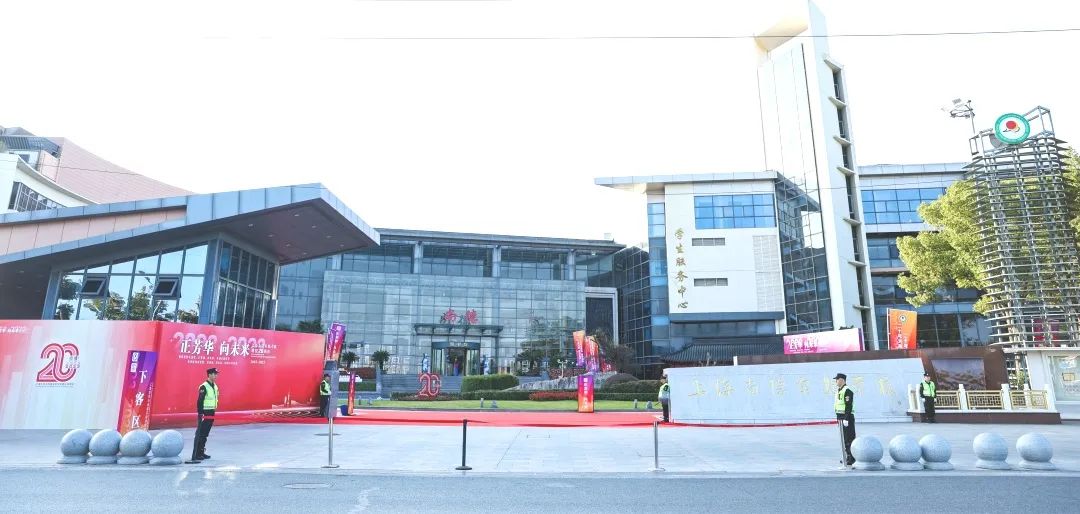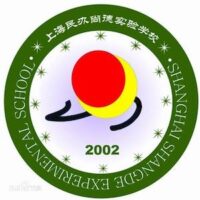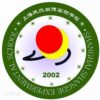Something About Company

About Shanghai Shangde Experimental School
Established in September 2003, Shanghai Shangde Experimental School is a prestigious private boarding school offering a complete 15-year educational ecosystem from kindergarten to high school. The school is committed to providing an outstanding learning environment that nurtures students’ potential and prepares them for a global future.
- Global Recognition: Since obtaining authorization from the International Baccalaureate (IB) Organization in 2010, Shangde has been an IB World School. The IBDP offered here is globally acknowledged, opening doors to top universities in Europe and America. The curriculum’s balanced structure, with six subject groups covering a wide range of disciplines, ensures students develop a well – rounded academic profile. For instance, students can choose from subjects like Higher Level Mathematics, Literature in English, and Sciences, which are highly regarded by international universities.
- Meeting Diverse Needs: The diverse course offerings within the IBDP are designed to meet the different interests and career aspirations of students. Whether a student is inclined towards the humanities, sciences, or the arts, there are suitable subject combinations available. The program also includes three core components: Theory of Knowledge (TOK), Extended Essay (EE), and Creativity, Activity, Service (CAS). TOK encourages students to think critically about different ways of knowing, the EE hones their research and writing skills, and CAS helps them develop into well – rounded individuals through practical experiences.
- Impressive Track Record: Over the years, Shangde’s IBDP graduates have achieved remarkable results. With a 100% acceptance rate into overseas universities, and more than 35% of them being admitted to the world’s top 50 universities annually, and over 70% to top – tier institutions, the school has proven its effectiveness in preparing students for higher education abroad. For example, in recent years, many students have been accepted into renowned universities such as the University of Toronto, the University of Melbourne, and the London School of Economics.
- Credit Recognition: In the American – Canadian curriculum program, Shangde has established a system of mutual credit recognition with American educational institutions. This means that students can earn an American high school diploma while studying at Shangde. The curriculum is designed to be equivalent to that of high – quality American high schools, covering essential subjects like English Language Arts, Mathematics, Science, and Social Studies.
- PBL and Community Service: Problem – Based Learning (PBL) is a key feature of this curriculum. Students engage in real – world projects that require them to apply scientific and innovative thinking. For example, they might work on a project about sustainable energy solutions, where they need to research, design, and present their ideas. The experiential community service component is also crucial. By participating in local and international community service activities, students develop a sense of social responsibility and a global perspective. They might volunteer in environmental protection projects or participate in cross – cultural exchange programs.
- Personalized Guidance: The school provides customized college counseling services. Professional counselors work closely with students from an early stage, helping them identify their strengths, interests, and career goals. Based on this, they create personalized study plans and college application strategies, ensuring that each student can achieve their educational aspirations.
- High – Reputation Exam Boards: In December 2022, Shangde introduced the A – Level curriculum with a 4 – year program. It collaborates with two highly reputable exam boards, AQA and CAIE. These exam boards are known for their rigorous assessment standards and high – quality educational resources. The A – Level curriculum offers a wide range of subjects, allowing students to specialize in their areas of interest. For example, students can choose from subjects like Mathematics, Physics, Chemistry, Biology, Economics, and English Literature.
- Flexible Course Selection: The curriculum’s flexibility enables students to choose the subjects that best suit their academic abilities and future career plans. This targeted approach helps students excel in their chosen fields and increases their competitiveness when applying to universities, especially those in the Commonwealth countries. Additionally, the school provides comprehensive support to students, including specialized teaching, study materials, and exam preparation guidance.
- Integrated Curriculum System: This curriculum is developed in line with national talent cultivation requirements. It combines six major curriculum systems, with a focus on the EJU (Examination for Japanese University Admission for International Students), the Japanese Language Proficiency Test (JLPT), and the English TOEFL test. Students not only receive a comprehensive education in academic subjects but also engage in a curriculum that is specifically designed to prepare them for studying in Japan. The program includes intensive language training in Japanese and English, as well as courses related to Japanese culture and society.
- Diverse Pathways: Students following the Sino – Japanese curriculum can obtain an American high school diploma upon graduation. They can then either aim for top Japanese universities through the EJU, with the option of direct admission to over 20 Japanese universities, or choose to transfer to prestigious universities in Europe and America. This diversity of pathways provides students with multiple opportunities to pursue their educational and career goals.
- High – Level Degrees: The teaching faculty at Shangde is highly qualified, with nearly 20% of them holding doctoral or master’s degrees. This high – level academic background ensures that teachers have in – depth knowledge in their respective fields and can provide students with comprehensive and accurate instruction. For example, in the science departments, teachers with advanced degrees in Physics, Chemistry, and Biology can offer students the latest research knowledge and experimental skills.
- Certified Teachers: A significant number of teachers are certified in their subject areas, and many have experience teaching international curricula. This means they are well – versed in the specific requirements and teaching methods of programs like IB, A – Level, and the American – Canadian curriculum. They can effectively guide students through the challenges of these international courses and help them achieve excellent results.
- Foreign Instructors: The school has recruited over 70 outstanding foreign teachers. These international educators bring with them a wealth of experience from different educational backgrounds around the world. They are able to introduce authentic international teaching methods and cultural perspectives into the classroom. For example, in English language and literature classes, foreign teachers can offer a more in – depth understanding of Western literary works and language usage.
- Cultural Exchange: The presence of foreign teachers also promotes a rich cultural exchange environment within the school. Students have the opportunity to interact with teachers from different countries, learn about diverse cultures, and develop cross – cultural communication skills. This exposure to different cultures broadens students’ horizons and helps them become more globally – aware individuals.
- IB – Trained and Certified: The school has a large number of teachers who have obtained IB training and certification. Among them, there are IB training officers, visiting officers, and official examiners. These teachers play a crucial role in implementing the IB curriculum effectively. They are familiar with the IB assessment criteria and can provide students with targeted guidance on how to meet the high standards of the IB program. For example, IB examiners can offer students valuable insights into how to write excellent Extended Essays and perform well in TOK presentations.
- Curriculum Development: Teachers with IB – related qualifications are also actively involved in curriculum development and improvement. They contribute their expertise to ensure that the IB curriculum at Shangde is up – to – date, relevant, and of high quality. They collaborate with other teachers to design innovative teaching materials and activities that enhance students’ learning experiences.




